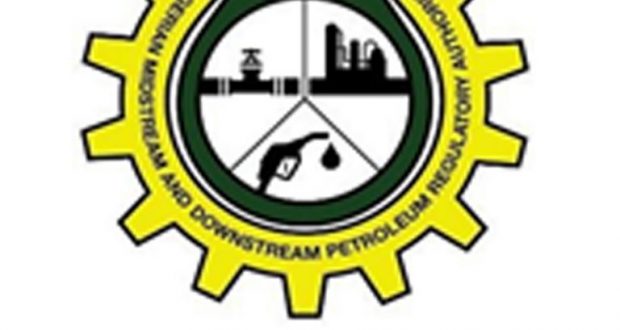…..by Ben Ndubuwa……s
In a bid to bolster the growth and sustainability of Nigeria’s petroleum sector, the Nigerian Midstream and Downstream Petroleum Regulatory Authority (NMDPRA) has called for more collaboration and investment across all facets of the industry. This was highlighted at the inaugural meeting of the Petroleum Industry Stakeholders’ Forum (PISF), held in Abuja on Tuesday.
The event, which brought together key players from the government, regulatory bodies, and the private sector, was marked by a series of strategic remarks aimed at reinforcing the country’s efforts to enhance energy security, promote investment, and ensure consumer protection.
Addressing the forum, the Executive Director of NMDPRA, Farouk Ahmed, praised the leadership of President Bola Ahmed Tinubu for his decisive actions in the petroleum industry, which have set the stage for transformative changes. “We express our sincere appreciation of the courageous leadership of His Excellency, Mr. President, Bola Ahmed Tinubu, GCFR, for the bold and consistent decisions to fully deregulate the industry, unify foreign exchange rates, and implement policies that unlock the full potential of our petroleum sector,” Ahmed remarked.
The NMDPRA’s chief also emphasized the vital role played by the Minister of Petroleum Resources and the Special Adviser to the President on Energy in streamlining operations within the sector. Their collaborative efforts, he said, have paved the way for enhanced domestic energy security, improved supply chains, and the revitalization of crucial midstream and downstream infrastructures.
“We believe that the establishment of this Industry Forum will complement the ongoing efforts to drive business growth and stimulate much-needed investments,” the Executive Director added.
Over the past year, NMDPRA has made significant strides toward reshaping the petroleum industry. Among the major initiatives is the deregulation of petroleum product prices, a move that has paved the way for a competitive market environment. This policy shift has facilitated increased investments and improved product availability, resulting in stable pump prices nationwide.
The Director highlighted the success of these reforms, stating, “For the first time in many years, Nigeria witnessed the end-of-year festivities and the beginning of a new year without any supply disruptions or fuel queues. The competitive market environment, combined with the appreciation of the Naira, has contributed to this stability.”
A key focus area for NMDPRA has been the revitalization of Nigeria’s refining sector. The ongoing development of the Dangote Refinery, which will be the largest single-train refinery in the world, as well as the gradual restreaming of NNPCL’s refineries, are critical components of the country’s push to become a net exporter of refined petroleum products.
The authority is also partnering with global organizations like S&P Global Commodity Insights to facilitate regional collaborations in the West African refined fuel market. This collaboration aims to create a transparent pricing model and an improved trading hub within the region, benefiting not only Nigeria but the broader West African community.
One of the NMDPRA’s standout achievements is its focus on consumer protection and the development of Compressed Natural Gas (CNG) as an alternative fuel source. According to the Director, over the past year, significant progress has been made in expanding Nigeria’s natural gas vehicle (NGV) population, which now stands at an estimated 30,000 to 50,000 vehicles.
“We have supported the Petroleum and Compressed Natural Gas Industry (PCNGI), which has stimulated the growth of conversion centers across the country. This has resulted in Nigeria’s conversion capacity growing by over 2500%, with new investments attracting over $400 million,” the NMDPRA boss stated.
He added that in line with the Decade of Gas Program, the NMDPRA is continuing to unlock Nigeria’s vast natural gas resources, contributing to the country’s industrialization and providing a cleaner energy source for domestic and export markets.
Despite these advancements, NMDPRA recognizes that challenges remain. The Director highlighted concerns about unauthorized petroleum handling facilities, poor collaboration on third-party access to infrastructure, and lack of cooperation from some operators in adhering to regulatory requirements.
“We implore industry stakeholders to uphold regulatory compliance, particularly in the areas of safety, efficiency, and consumer protection. The evolution of a competitive, sustainable market depends on all actors working together,” he said.
Looking ahead, NMDPRA is committed to further consolidating its achievements. The authority plans to continue collaborating with stakeholders to ensure the deployment of CNG infrastructure in major cities like Lagos and Abuja, aiming to convert up to 100,000 vehicles by the end of the year. Additionally, NMDPRA intends to enhance its regulatory oversight by upgrading laboratories for improved product quality analysis and reinforcing inter-agency collaborations.
“Our ultimate goal is to create a transparent, competitive, and sustainable petroleum industry that meets the energy needs of Nigerians and contributes to the growth of Africa’s energy sector,” the Director concluded.
As the Nigerian petroleum sector continues to evolve, NMDPRA’s commitment to fostering growth, securing investments, and ensuring consumer protection remains steadfast. The NMDPRA’s leadership is optimistic that these ongoing efforts will create a stable and prosperous energy future for the country.
 Financial Energy Review
Financial Energy Review





